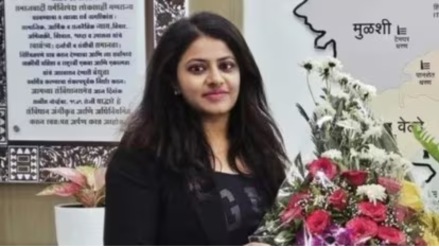The Supreme Court on Wednesday provided interim protection from arrest to former IAS trainee Puja Khedkar, who has been accused of fraudulently clearing the civil services examination conducted by the Union Public Service Commission (UPSC). The bench, comprising Justices B V Nagarathna and Satish Chandra Sharma, issued a notice on her appeal challenging the Delhi High Court’s denial of anticipatory bail and directed that no coercive steps be taken against her until the next hearing, scheduled for February 14.
Allegations and Legal Proceedings
Khedkar is accused of cheating and unlawfully availing herself of benefits under the OBC and disability quotas during the civil services examination. The Delhi Police have filed an FIR against her under various provisions of the Indian Penal Code, the Information Technology Act, and the Rights of Persons with Disabilities Act. Khedkar, however, has denied all allegations, maintaining that the charges are unfounded.
Her plea to the Supreme Court argued that custodial interrogation was unnecessary since the case hinges on documentary evidence already in the prosecution’s possession.
The Delhi High Court previously rejected Khedkar’s anticipatory bail plea, citing prima facie evidence of her intent to deceive. The court remarked that her conduct seemed driven by a motive to exploit schemes designed for disadvantaged sections of society, thereby misleading the complainant and the UPSC.
Arguments Before the Supreme Court
During the hearing, senior advocate Siddharth Luthra, representing Khedkar, expressed concerns over adverse remarks made by the Delhi High Court, which he argued could complicate her case if it proceeds to trial. Justice Nagarathna questioned the urgency of the matter, given that no action had been taken against her thus far. Luthra clarified that Khedkar had already lost her job and was actively pursuing legal remedies.
The Supreme Court’s direction to refrain from any coercive action against Khedkar offers her temporary relief. The notice issued by the bench is returnable by February 14, allowing both parties to present their arguments before any further judicial decision is made.
Implications of the Case
The case underscores the gravity of allegations concerning the misuse of reservation benefits and the stringent scrutiny such claims attract in the judiciary. It also highlights the challenges faced by individuals accused of such offences, particularly in balancing legal defence and professional repercussions.
As the legal battle unfolds, the Supreme Court’s decision in the matter will likely set a precedent for handling similar cases in the future.
